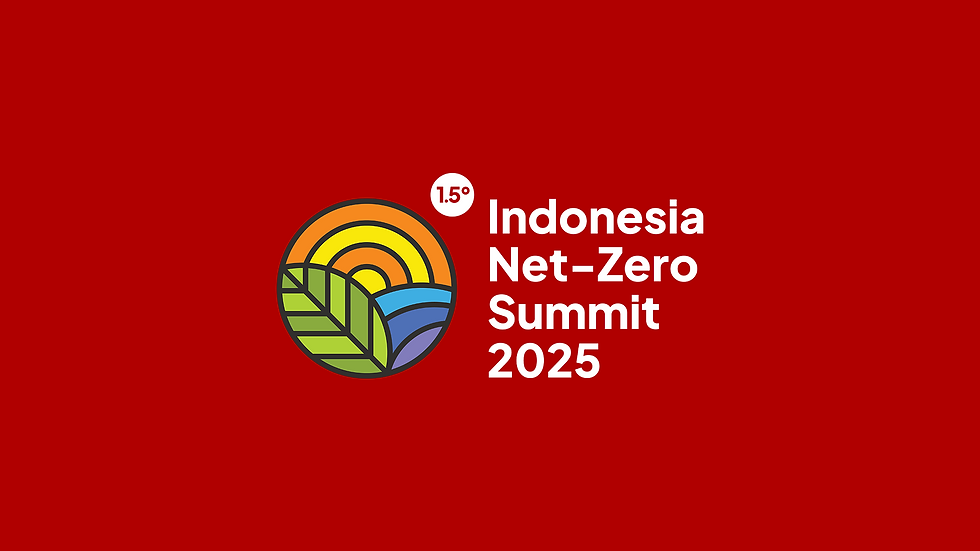top of page


Krisis iklim yang kian kompleks menuntut solusi cepat untuk menahan laju kenaikan suhu Bumi di atas 1,5 °C sekaligus membantu manusia beradaptasi terhadap bencana iklim yang semakin sering terjadi. Di Indonesia, teknologi hijau (green technology) atau climate tech telah menghasilkan terobosan di berbagai bidang, mulai dari smart agriculture, efisiensi energi, smart grid, serta pemanfaatan big data dan Artificial Intelligence (AI) untuk memprediksi cuaca. Sejumlah inovasi telah menunjukkan dampaknya, seperti biochar telah terbukti menurunkan emisi dan meningkatkan toleransi tanaman terhadap tekanan iklim; penggunaan AI yang telah membantu prediksi cuaca mikro dan memperkuat ketahanan iklim komunitas melalui analisis pola lokal; dan serta smart microgrid PV yang memungkinkan distribusi listrik terbarukan yang andal di wilayah pedesaan, membuka akses energi bersih sekaligus mendukung kemandirian masyarakat.
Namun, adopsi teknologi iklim tidak selalu berjalan mulus. Keterbatasan infrastruktur digital, tingginya biaya internet, dan rendahnya literasi digital menjadi hambatan utama bagi masyarakat di wilayah rentan untuk mengakses solusi berbasis teknologi. Padahal, konektivitas digital sangat krusial karena banyak teknologi iklim modern bergantung pada listrik dan internet. Hingga 2024, penetrasi internet di pedesaan baru mencapai 74%, dan per Juni 2025 masih ada 10.068 desa yang belum teraliri listrik. Kondisi ini menegaskan bahwa inklusivitas harus menjadi bagian tak terpisahkan dari agenda teknologi iklim demi memperkuat ketahanan dan mencegah pelebaran kesenjangan sosial.
Sesi ini akan mengeksplorasi berbagai clean tech yang dikembangkan di Indonesia, ditampilkan langsung oleh para ahli yang terlibat dalam proses pengembangan dan pemantauan teknologinya. Selain menampilkan inovasi, sesi ini juga akan mengulas bagaimana teknologi iklim dapat menjadi lebih inklusif dan mudah diakses oleh kelompok masyarakat yang paling rentan terhadap dampak krisis iklim.
The increasingly complex climate crisis demands swift solutions to curb global temperature rise beyond 1.5 °C while also helping people adapt to the growing frequency of climate-related disasters. In Indonesia, green technology—or climate tech—has led to breakthroughs across various sectors, including smart agriculture, energy efficiency, smart grids, and the use of big data and Artificial Intelligence (AI) for weather forecasting. Several innovations have already shown impact: biochar has proven effective in reducing emissions and enhancing crop tolerance to climate stress; AI has improved micro-weather prediction and strengthened community climate resilience through local pattern analysis; and smart microgrid PV systems have enabled reliable renewable electricity distribution in rural areas, expanding access to clean energy while supporting community self-sufficiency.
However, the adoption of climate technology doesn't always go smoothly. Limited digital infrastructure, high internet costs, and low digital literacy remain major barriers for communities in vulnerable areas to access tech-based solutions. Yet digital connectivity is crucial, as many modern climate technologies rely on electricity and the internet. As of 2024, internet penetration in rural areas reached only 74%, and by June 2025, there were still 10,068 villages without electricity. This reality underscores the need for inclusivity to be an integral part of the climate tech agenda—to strengthen resilience and prevent widening social inequality.
This session will explore various clean technologies developed in Indonesia, presented directly by experts involved in their development and monitoring. In addition to showcasing innovations, the session will also discuss how climate technologies can become more inclusive and accessible to the communities most vulnerable to the impacts of the climate crisis.
Panelist and Moderator
bottom of page





